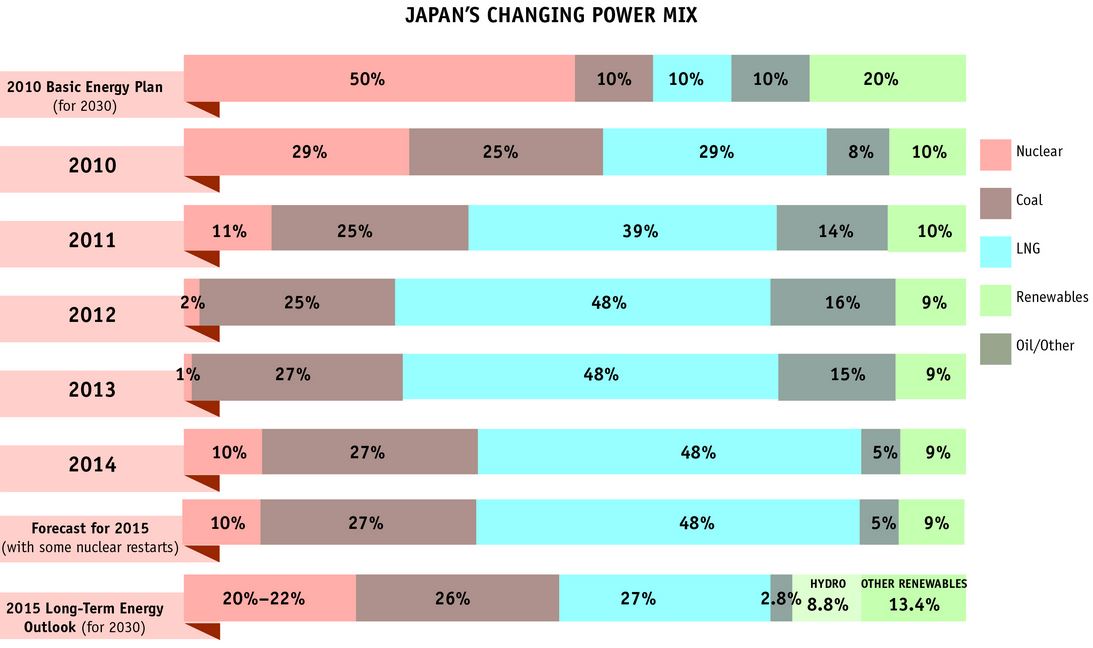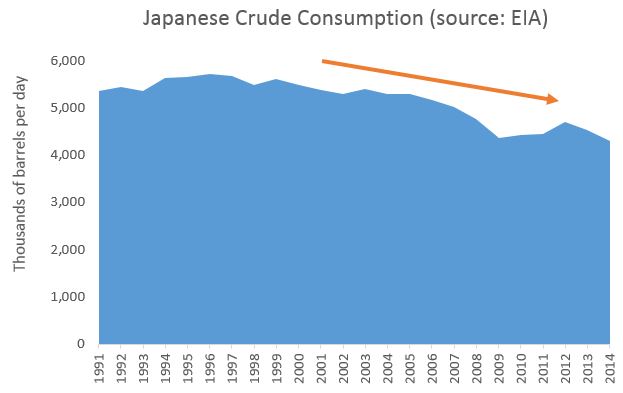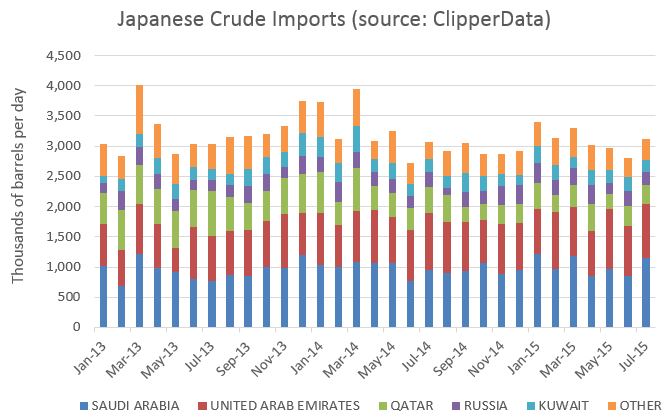With so much focus on the level of Chinese oil imports, impending US LNG exports, and India's rising coal consumption, it goes somewhat by the wayside that Japan is one of the largest global consumers of all three of these commodities.
Japan is the third largest consumer of oil (although soon to be fourth), the fourth largest consumer of coal, and the fifth largest consumer of natural gas in the world. And after the Fukushima nuclear disaster in March 2011, it has only grown in stature as the largest global consumer of LNG.
Given the announcement of the first restart of a nuclear reactor in four years, it seems a timely juncture to assess what this means for the primary fuel sources in the world's third largest economy, and specifically, oil demand.
Prior to the Fukushima disaster, Japan relied on nuclear to meet ~30% of its electricity needs. However, after March 2011, all 54 of its nuclear reactors were sequentially taken offline for safety tests, and none have returned... until now. It should be noted that this has left Japan in a bigger pickle than most, as it has scant natural resources to speak of (producing less than 0.5 Bcf/d of natural gas, ~140,000 barrels per day).
LNG imports, which already met ~30% of Japan's generation needs, immediately stepped up to fill much of the gaping hole left by nuclear, rising to half of the generation mix. It was joined in this effort by oil and coal, which rose to 15% and 25%, respectively.

Last year, however, oil's share of the generation mix dropped to a mere 5%, as a heavier reliance on coal and natural gas combined with a consumption tax to whittle levels lower. The shrinking share of oil in Japan's energy mix is not a new trend, however.
Its share of total energy consumption has dropped from 80% in the 1970s to close to 40% now, and looking ahead, consumption is only going to continue lower due to a combination of number of factors, including government energy efficiency targets, fuel substitution, and a declining population.
According to ClipperData, a similar downward trend is in place for waterborne imports. Japan’s largest suppliers are the Middle East, which account for ~85% of total oil imports. Saudi Arabia and UAE are not only key suppliers, but they also lease crude oil storage to Japan, giving them priority to purchasing if the need arises. Although cargoes from Iran have been subdued in recent years amid sanctions, they still hover around 200,000 barrels per day. Japan is Iran's third largest customer, behind China and India.
All the while, Japan is seeking to further diversify its supply sources away from the Middle East. While it seeks greater ties with both Russia and West Africa, an indication of its wide-ranging appetite is exemplified by the receipt of a 300,000 barrel cargo of US condensate in the last month.
Waterborne imports underscore the trend we are seeing in oil consumption. ClipperData shows they have been gradually edging lower from averaging 3.25 mbpd in 2013, to 3.14 mbpd in 2014, to 3.12 mbpd in 2015 thus far through July:

To bring this back to the question at hand, what does a nuclear restart mean for oil demand? Even though oil's share of the generation mix has been marginalized, projections suggest that the restart of three reactors could hit oil demand by 80,000 barrels per day. While Japan will not restart all of its nuclear reactors (a number have already been retired), restarting a third of them is not beyond the realm of possibility; a scenario which would significantly dent oil demand.
Even though oil could still be the leading fuel source in Japan by 2030, the combination of a shrinking, aging population, an ongoing tepid economic environment, fuel substitution, energy efficiency targets, and higher taxation mean the downward trend for oil demand looks to be entrenched: the restart of nuclear reactors will only exacerbate it.
